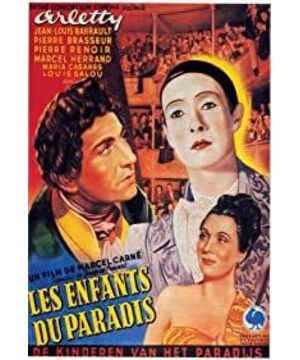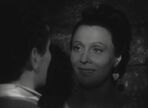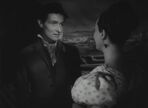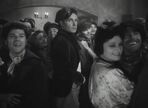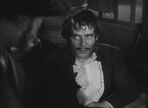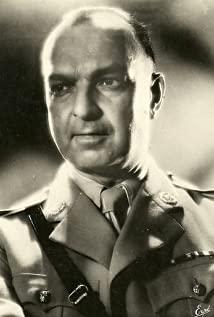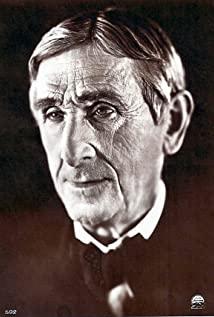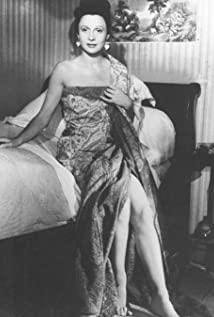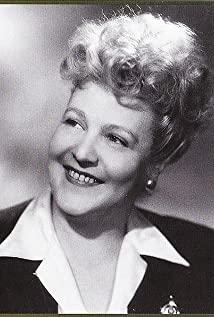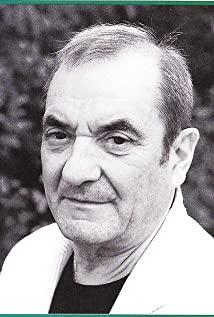This is a monumental blockbuster. Its shooting and screening itself are legendary.
In 1942, after Carne and Previ completed the film "The Visitor at Night", they wanted to find a novel and meaningful subject and make another film. In January 1943, they consulted Jean-Louis Barlow in Nice. Jean-Louis Barlow suggested that they put the life of the 19th-century French pantomime master De Biro on the screen, and told them a dramatic story about De Biro’s life: Once De Biro took his wife and children on a walk in the street. Inadvertently collided with a young man. The man was rude and the pantomime artist was furious and hit Poppy on the head with his cane, but unexpectedly killed him. The family of the deceased went to the court, and on the day of the trial, the Parisians swarmed to watch because it was the first time a pantomime celebrity spoke in public. This story impressed Carne and Previ very deeply. Moreover, using the screen image to reproduce the "Evil Avenue" in the 19th century, this suggestion itself is challenging. So they concentrated on studying various documents and materials of that era (for example, the movie carnival scene was inspired by a stamp pattern). However, after repeated deliberation, they always felt that it was not appropriate to put on the screen the story of Debilo's accidental injury and death, so they decided to make some other plots. At first, Plevi named the script "The Walkman", and he took several people who were contemporary with Debilo-such as the famous actor Frederick Le Maitre and the notorious gangster Lassene- Also written into the script. Although the characters use their real names and surnames, the story is purely fictitious.
This is the script with the most complicated plot, the most characters, the most magnificent conception, and the most beautiful of the scripts created by Pleven. Carne decided to make it into an unprecedented blockbuster. However, the political atmosphere and economic conditions were not conducive to the filming of the film at that time. Because that was the eve of the decisive battle of the World Anti-Fascist War, the German authorities that occupied France tightened their ideological control over the occupied areas. The film is generally not allowed to exceed 90 minutes, but the time span of the story of "Children of Heaven" is as long as ten years, plus the tortuous plot, the film can hardly be less than two and a half hours. This is absolutely not allowed by the occupying army authorities, which strictly enforce light control. What's more, the film has profound cultural connotations. Carne wants to use the film to promote the excellent national culture of France, praising the truth, the good and the beauty, and flogging the fake, evil and ugliness. After the film was made, the review by the authorities would inevitably fail to make a ruling detrimental to the spirit of the film. This is the last thing Carne wants to see. Therefore, he made the filming work progress very slowly, secretly hoping that fascism would fall as soon as possible, so that the film, filmed during the occupation period, would be worthy of welcoming the liberation of the motherland. The lack of materials also caused difficulties for filming, and there was a power outage later, but Carne was unwilling to engage in sloppy work. The setting of "Evil Avenue" alone (up to 200 meters in height, is one of the most magnificent in the history of French cinema), requires a lot of mortar, slats, nails, glass, etc., the most lacking building materials during the war. The problems caused by politics are not small. At that time, the law clearly prohibited the employment of Jews. Carne hired the composer Joseph Gosma to compose the film, and the set designer Alexander Trauner was the designer of the film. They were all Jewish and could only work in secret. Even more troublesome is Robert Levigan, who played the role of Jerich, the costumer of the "Variety Theater". Because he had participated in a radio program on fascist radio, the underground resistance sent him a threatening letter, claiming that he would be executed, and he was frightened. He dared not go to the studio in Nice to film again. Carne had to change Pierre Renoir to play the role halfway through. The film that had been shot before had to be reshot wherever the role appeared. However, all the unexpected and unexpected difficulties did not shake Carne's determination to complete the film. With their determination and courage, Carne, Previ and all the cast and crew of "Children of Heaven" finally ushered in the restoration of the motherland with this huge film that embodies their noble artistic style.
The reason why "Children of Heaven" has become a monumental film is not only its grand scale, but also its artistic refinement and perfection. Its play structure is huge and complex. In addition to several plot lines developing in parallel, six "plays in play" (four mimes and two dramas) are interspersed in the film. These "plays in a play" are not episodes outside the plot, but the "finishing finishing touch" of the plot. They make the relationship between the main themes of the film closer.
"Children of Heaven" has multiple meanings:
The so-called "heaven" refers to the highest floor of the theater. It was the cheapest seat in the theater, and the poor people who could only afford cheap tickets became the "God" in "heaven". Needless to say, "children of heaven" certainly refers to the actors on stage. The whole film is alluding to the relationship between "Gods of Heaven" and "Children of Heaven". At the beginning of the film, the curtain opens, and at the end of the film, the curtain closes. The audience in the theater has therefore become the "God" in the "heaven". The relationship between "God" and "children" actually reflects the kinship between life itself and art. The "play in play" in the film—especially the pantomimes created by the pantomime artist Baptiste based on his personal or inner experience—strongly shows this kind of kinship.
"Children of Heaven" can also be regarded as an essay exploring the nature of love. There are various types of love in the film: idealistic romantic love (Baptiste), unfettered worldly love (Frederick), jealous possessive love (Earl), and enjoyment only Of selfish love (Lassene). All kinds of love are described in detail in connection with the true appearance and distortion of human nature, and the perfection or ugliness of human nature.
This film is still a more artistic discussion. It compares pantomime and drama with their similar movies (audio and silent films) in value.
In the final analysis, the film makes a deep comment on the human situation in modern society: in the fantasy human life that is swayed by fate, love can only be an elusive and fleeting phantom. Baptiste went to chase after Garons, who was travelling in the car, but was blocked by the carnival crowd. Many of the revellers wore the crown of Biello, a pantomime character created by Baptiste, which means that Baptiste is not the only love-lost in the vast world. What a meaningful movie image this is!
The characterization of the film is also very successful. Galantia is the most beautiful and versatile female image ever created by Plevi. She has several faces, maybe what we saw at the beginning of the film was her "truth". However, in the eyes of Baptiste, she is the embodiment of spiritual love; in Frederick’s eyes, she is a happy couple; in front of the earl, she is a delicate socialite; in the eyes of Lassene, she It is a difficult stunner and a challenge that is not easy to win. Arretti played the role brilliantly. Without her convincing beauty and unfathomable sense of mystery, this character image would not have that strong artistic conviction, and the credibility of the entire film would be greatly affected. Garance is one of the most successful roles that Arretti has created in her long career as an actor. Baptiste is an illusory dreamer, like an alien from the moon. He himself admitted: "The moon is my hometown." In order to play this role well, the drama master Jean-Louis Barlow has made elaborate designs in physical movements. He deliberately highlights the character's masculine spirit, otherwise, Baptiste's persistent love and lasting passion for Galantz would appear unreal. But this kind of manhood can't conceal the character's slenderness and sensitivity, otherwise he would not be a dreamer with the moon as his hometown. What's more valuable is that the character of the characters in the film develops with the development of the plot, which makes the character fuller and more flesh-and-blood. Galence became serious and sensitive under the influence of Baptiste. It was Baptiste's purity that made her no longer degenerate; and Baptiste became more and more practical. Finally, when they reunited on the balcony, they had reached full harmony.
"Children of Heaven" marks the pinnacle of Carne's artistic creation and is his recognized masterpiece. The famous film historian George Sadour called it "a magnificent and gorgeous film, a magnificent and philosophical ballet"; in 1979, the French Academy of Motion Picture Arts and Technology named it "1929 (the appearance of sound films) ) Is the number one among the ten best French films of all time". Indeed, this film is one of the most breathtaking achievements in French film history.
View more about Children of Paradise reviews


